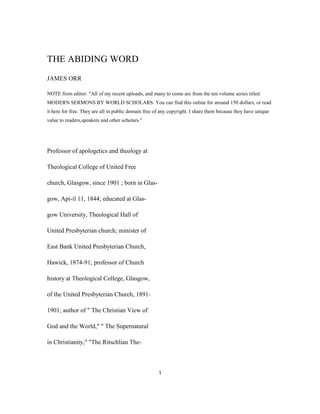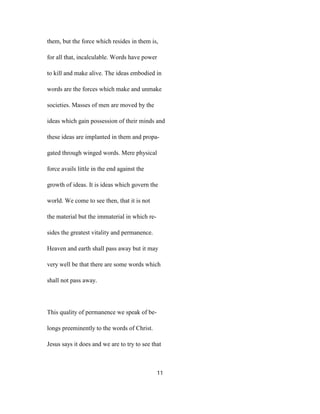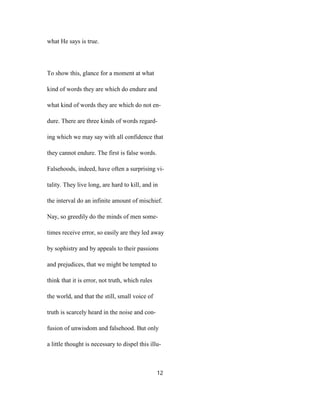The document discusses the enduring nature of the words of Jesus Christ in contrast to the temporary nature of the material world. It highlights that while heaven and earth are transient, Christ's teachings are timeless truths that resonate through the ages. The text emphasizes that true, weighty, and substantial ideas, particularly those concerning God and spiritual matters, possess greater permanence than the physical world.
















![from above. "What says even a skeptic of
Christ (Greg) : *' In reading His words we
feel that we are holding converse with the
wisest, purest, noblest being that ever clothed
thought in the poor language of humanity ; in
studying His life we are following in the foot-
steps of the highest ideal yet presented to us
on earth." Christ spake as never man spake ;
and in this way, by his words, as well as by
all else about Him, He vindicated His claim to
be not son of man alone, but Son of God ]Iost
High.
If Christ's words are true do they not also
possess the other qualities of permanence?
They are certainly weighty words. No light,
trivial, shallow utterances are they. They em-
body deep enduring principles ; set forth more
than master truths ; move in a region as high
above the ordinary teachings of man as
17](https://image.slidesharecdn.com/theabidingword-180219230649/85/The-abiding-word-17-320.jpg)








